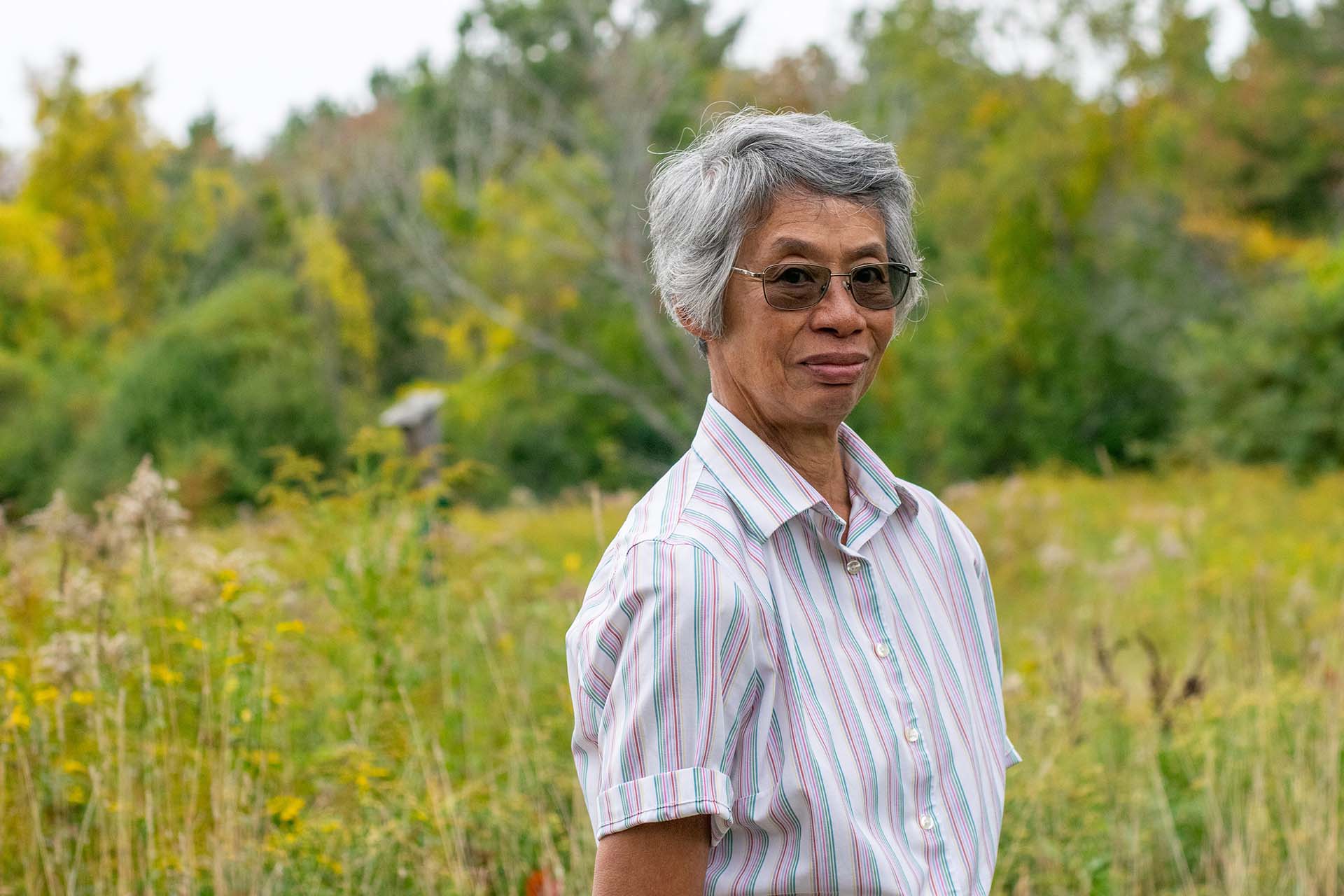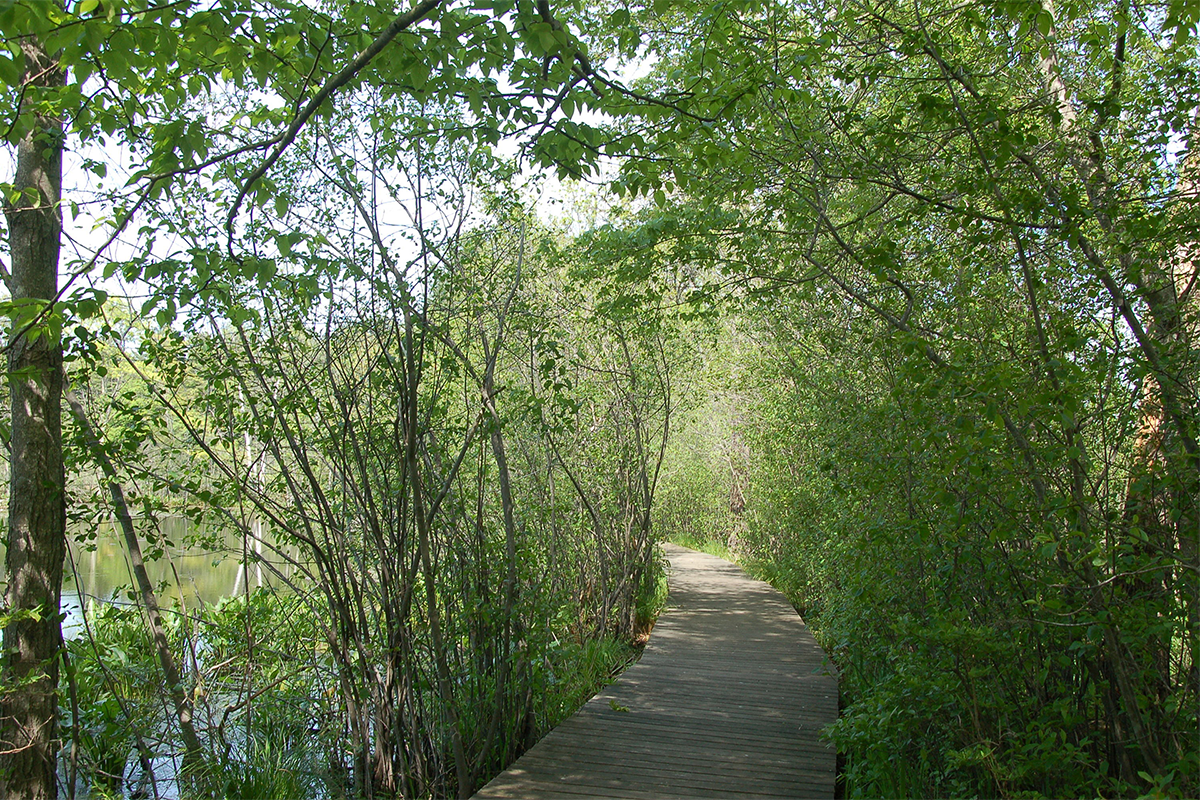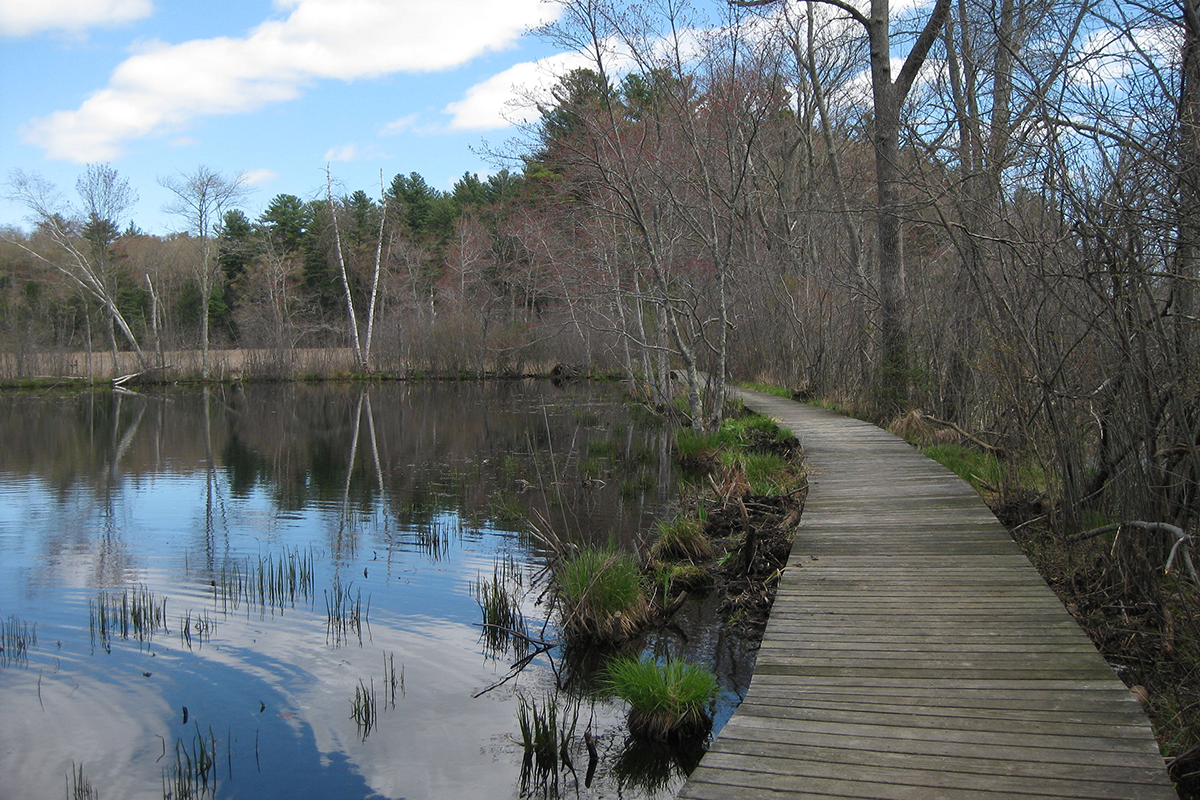I have always enjoyed the outdoors and science. When I went to college at Vassar in the 1960s, Rachel Carson’s Silent Spring and other writings started me thinking about a career in ecology. I wrote to government agencies asking about job opportunities; the replies were not encouraging. So I switched my focus from zoology to chemistry and spent my working life in laboratories—indoor places. In my free time, I went hiking, skiing, sailing, and birding, and had many other outdoor adventures around central Pennsylvania.
When I moved to Massachusetts in 1984 and began looking for places to hike, I discovered Mass Audubon wildlife sanctuaries. In 2000, a move to the North Shore put Ipswich River Wildlife Sanctuary in Topsfield just 10 minutes away. I wanted to give back and help the environment but my job did not permit donating much time. So I helped with special events and did trail monitoring while I hiked, reporting any problems I found to the property manager.
As retirement approached, I began looking for new ways to fill my time. I spoke to the staff at Ipswich River about volunteering to do some type of outdoor work related to ecological management and they asked if I would help restore a field by removing an invasive plant, Glossy Buckthorn. That fall, I successfully cleared a small patch with the guidance of Richard Wolniewicz, the property manager, and Lou Wagner, the now-retired regional scientist.
Unfortunately, the buckthorn grew back the following spring. To permanently eradicate it, we would need to take a targeted approach, individually cutting and applying herbicide to each plant by hand. Today, the fields contain more grasses and wildflowers and fewer invasive plants, which is very satisfying to see. With the help of other volunteers, student interns, and staff, we have extended the work to remove buckthorn along the wetland trail edges, as well.
This volunteer work has provided opportunities to meet and work with people from many different backgrounds, to learn botany and ecology, to present at Mass Audubon’s annual Staff Natural History Conference, to drive a tractor, and to keep physically fit. As a bonus, I observe birds, mammals, amphibians, and insects as I work. I am honored to be a part of Mass Audubon’s effort to conserve our natural world.





